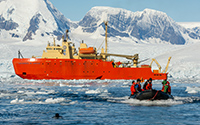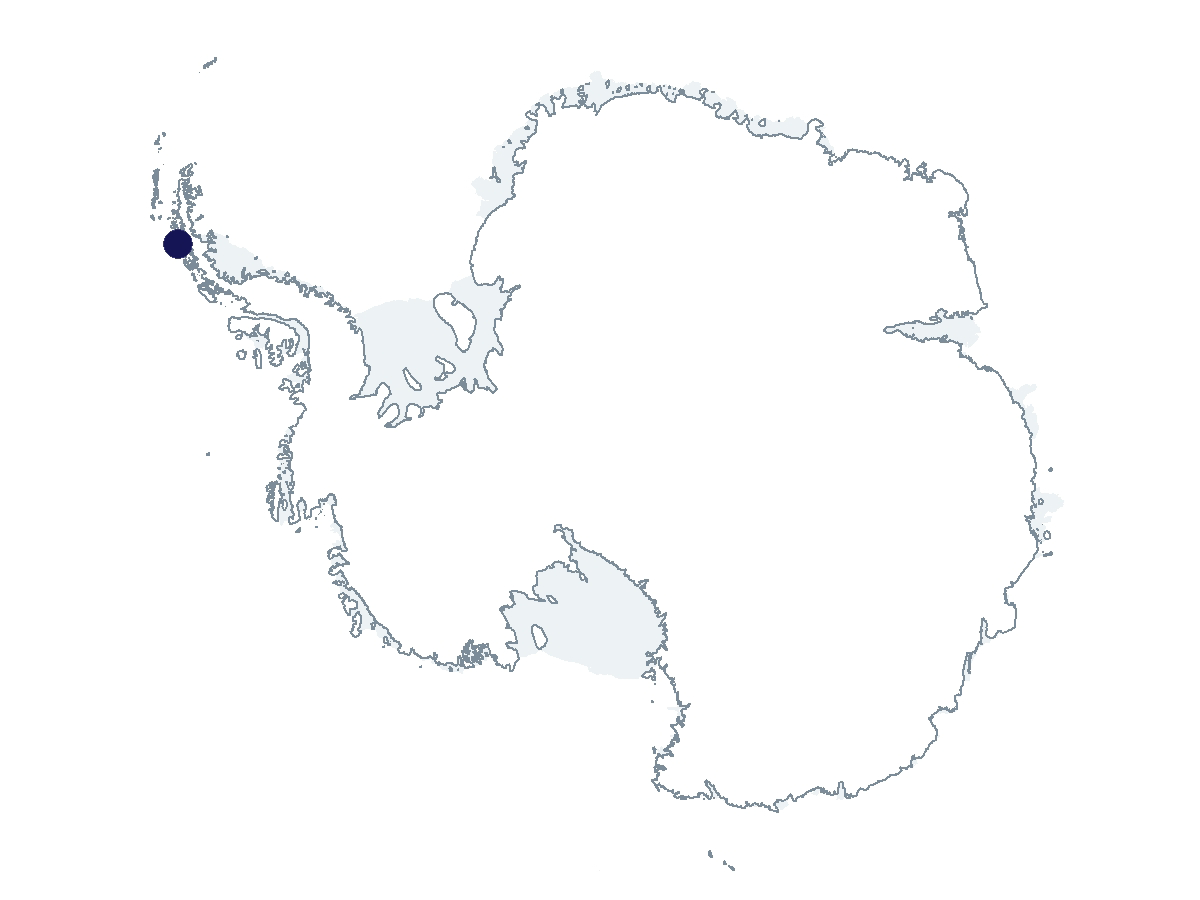2022-2023 USAP Field Season
Project Detail Project TitlePhysical mechanisms driving food web focusing on Antarctic biological hotspots Summary
Event Number:
Program Director:
ASC POC/Implementer: Principal Investigator(s)
Dr. Josh Kohut
Location
Supporting Stations: ARSV Laurence M. Gould DescriptionUndersea canyons are important oceanic biological hotspots and are critical for understanding coastal ecosystems. Observations of currents over Palmer Deep canyon indicate that surface phytoplankton blooms enter and exit the local hotspot on scales of ~1-2 days. This time of residence is in conflict with the prevailing idea that canyon-associated hotspots are primarily maintained by the upwelling of nutrient-rich deep water that fuels local phytoplankton growth. Instead, the implication is that horizontal ocean circulation is likely more important to maintaining these biological hotspots than local upwelling and its physical concentrating effects. Researchers on this project are integrating a modeling and field program to target the processes responsible for transporting and concentrating phytoplankton and krill biomass to known penguin foraging locations. Field Season OverviewIn the 2022-23 season, six science team members will use ten days on the ARSV Laurence M. Gould (LMG) to recover a three-site High Frequency Radar (HFR) network near Palmer Deep. HFR sites with Remote Power Modules on site at the Joubins (JOU) and Wauwermans (WAU) Islands. Two PI-provided vans will be loaded on the LMG to transport all the equipment needed for the recovery and storage of HFR stations. The team will be based on the LMG and use day trips with small boats for recovery operations. The gear will be transported from the JOU and WAU sites to the LMG using a Zodiac and the marine landing craft. Standard survival bags will be on hand to provide for camping overnight in the event that conditions prevent safe return to the vessel.
Deploying Team Members
|
2022-2023 Science Planning Summary



For USAP Participants |
For The Public |
For Researchers and EducatorsContact UsU.S. National Science FoundationOffice of Polar Programs Geosciences Directorate 2415 Eisenhower Avenue, Suite W7100 Alexandria, VA 22314 Sign up for the NSF Office of Polar Programs newsletter and events. Feedback Form |



